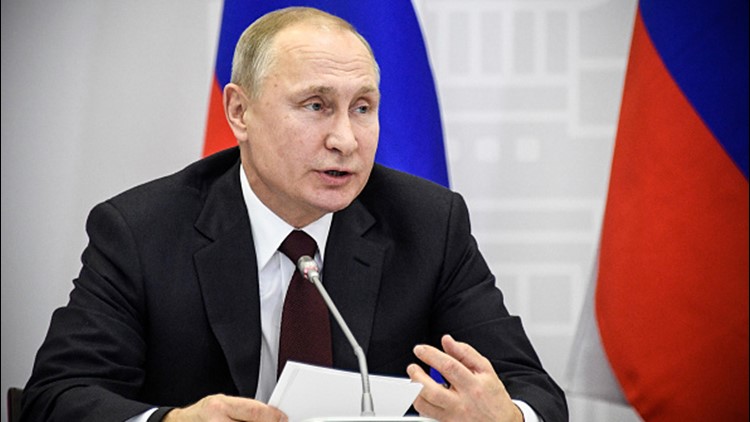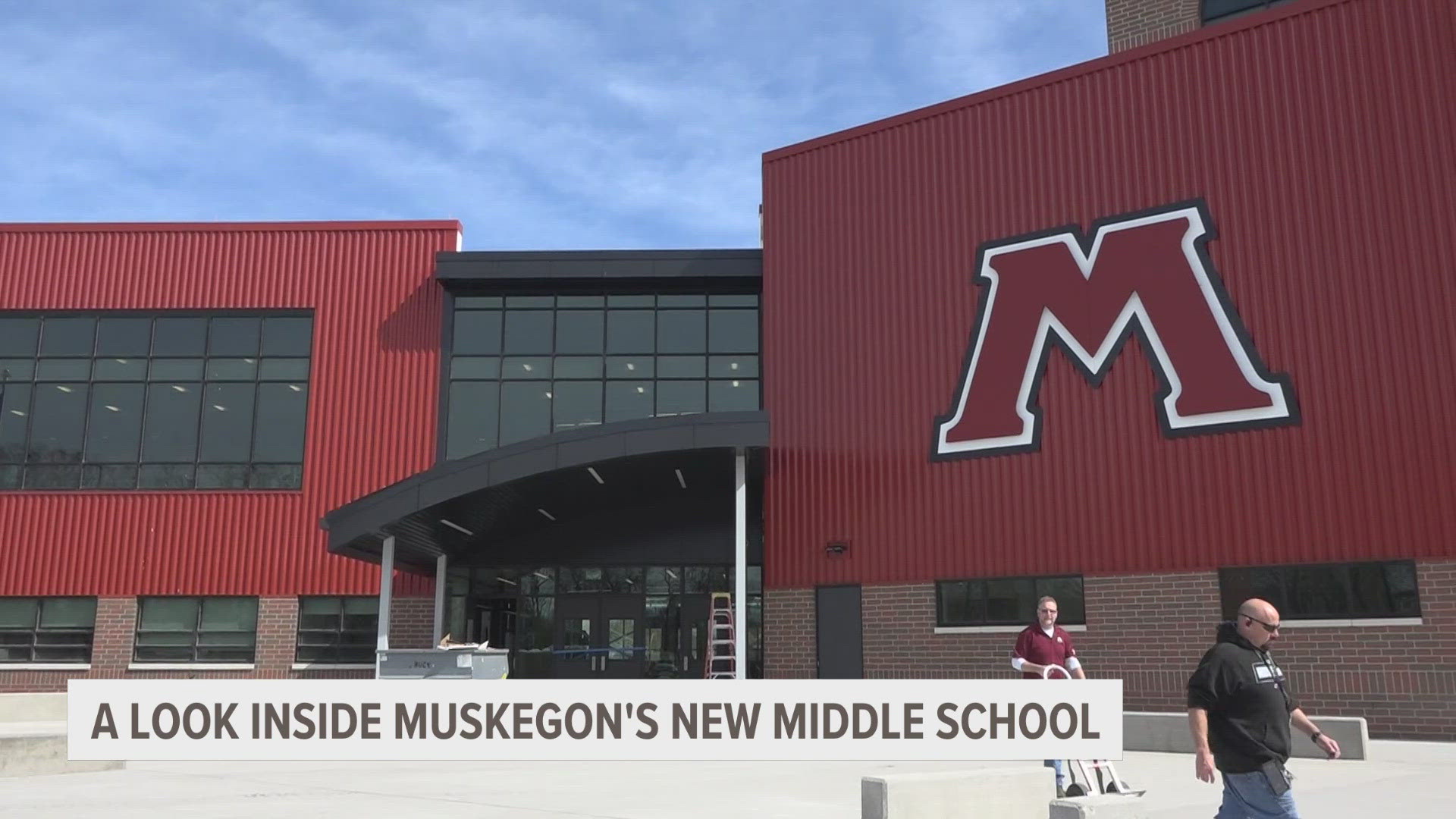WASHINGTON — The Senate released Monday a pair of reports that found Russia engaged in an all-out social media campaign on Donald Trump's behalf during the 2016 election and continued to support him after he took office.
One report, compiled by Oxford University’s Computational Propaganda Project and a social media analysis firm called Graphika, looked at millions of posts on every popular social media platform from Facebook to Pinterest that were provided to the Senate and House Intelligence committees.
The second report – written by New Knowledge, a cybersecurity firm specializing in protection from "social media disinformation attacks" – found that in addition to a "sweeping and sustained social influence operation," the Russians also tried to hack online voting systems and stole Clinton campaign emails, "which led to a controlled leak via WikiLeaks."
According to the Oxford report, Russia's Internet Research Agency "launched an extended attack on the United States by using computational propaganda." More than 30 million people shared content from the Internet Research Agency on Facebook and Instagram between 2015 and 2017.
The report said those posts used text, videos, memes and pictures in a targeted effort to boost Trump at important moments in the campaign like the debates, conventions and Election Day. The Russian social media influence first focused on Twitter in 2013, but "quickly evolved into a multi-platform strategy involving Facebook, Instagram, and YouTube amongst other platforms."
In February, special counsel Robert Mueller – who is leading the Justice Department investigation into Russian election meddling – indicted 13 Russian nationals and the Internet Research Agency in an alleged conspiracy to influence the 2016 election.
The Internet Research Agency operated a "troll farm" based in Russian President Vladimir Putin's hometown that employed hundreds of English speakers with "a strategic goal to sow discord in the U.S. political system, including ... supporting the presidential campaign of then-candidate Donald J. Trump and disparaging Hillary Clinton," according to the indictment.
The Oxford report said the Russian trolls' efforts focused on a few main objectives: pushing African-American voters to boycott the election and giving them misinformation about how to vote; getting Latino voters to distrust the U.S. government; "encouraging extreme right-wing voters to be more confrontational," and spreading false stories and conspiracy theories.
The campaign had two strategies, the report said. One was to post "clickbait" content "appealing to the narratives common within a specific group" in order to drive traffic. "Then the pages posted content that intended to elicit outrage from these groups."
Efforts targeting African-Americans, Latinos, liberals and members of the LGBTQ community used different approaches with each group, but the overall aim was get voters "to boycott the election, abstain from voting for Clinton, or to spread cynicism about participating in the election in general."
In contrast, conservatives "were actively encouraged to get behind Trump’s campaign."
"Differential messaging to each of these target groups was designed to push and pull them in different ways. What is clear is that all of the messaging clearly sought to benefit the Republican Party – and specifically, Donald Trump," the Oxford report said.
The Russian campaign used a range of platforms including Facebook, Twitter, Tumblr, Instagram, YouTube, Pinterest, Vine, Gab, Meetup, Reddit, Medium, Pokemon Go and even Google+, according to the reports.
The IRA campaign did not end with Trump's election. In the six months after Trump's victory, the Oxford report found that the group's activity increased 238 percent on Instagram, 59 percent on Facebook and 52 percent on Twitter.
Two of the biggest spikes in post-election activity occurred on Dec. 29, 2016, the day President Barack Obama announced the expulsion of 25 Russian diplomats for election interference. The next spike was the following day when Putin announced he would not respond with actions against the U.S.
The largest surges in IRA's social media operations were in April and May of 2017. In that time period, Trump held a meeting in the Oval Office with Russian officials, media reports identified Carter Page as a Trump associate whom the Russians had tried to recruit, and Trump ordered an airstrike on a Syrian airbase.
The IRA activity dropped off about mid-2017 when social media companies began to stop allowing the group to purchase ads and to suspend its accounts.
The report from New Knowledge said the operation began in St. Petersburg, Russia, in 2013 with more than a thousand people engaged "in round-the-clock" influence operations, first targeting Ukrainian and Russian citizens, and then, well before the 2016 US election, Americans."
New Knowledge said the "scale of their operation was unprecedented" reaching "126 million people on Facebook, at least 20 million users on Instagram, 1.4 million users on Twitter, and uploaded over 1,000 videos to YouTube."
That report also found a "clear bias" toward Trump in the IRA operations. They posted no pro-Clinton content on Instagram or Facebook, except for one post encouraging Muslims to attend a rally supporting her.
The IRA effort to divide and disillusion Americans capitalized on the racial tension over police shootings and the Black Lives Matter movement, which was boiling over in the years leading up the election.
That report found that the "most prolific" efforts on Facebook and Instagram focused on African-Americans where the Russians were able to develop unwitting "human assets" to help them share their content. The degree to which the Russians were able to blend into "authentic Black community media" wasn't matched in liberal or conservative media, the report said.
"While other distinct ethnic and religious groups were the focus of one or two Facebook Pages or Instagram accounts, the Black community was targeted extensively with dozens," New Knowledge found.
Among the domain names used by IRA in the campaign to influence African-Americans were blackvswhite.info, dntshoot.com, donotshoot.us, blackmattersusa.com, blackmattersus.com, blacktivist.info, blacktolive.org, blacksoul.us, proudtobeblack.org, black4black.info and blackfist.pro.
The group's top 10 Facebook pages, according to total number of likes, were Being Patriotic, Stop A.I. (Stop All Immigrants), Heart of Texas, Blacktivist, United Muslims of America, Army of Jesus, Brown Power, LGBT United, South United and BM (Black Matters).
The reports' findings reflected those of a USA TODAY analysis from May which looked at thousands of IRA ads. The social media ads were clearly designed to inflame racial animosity. Some of the ads focused directly on race while others dealt with related themes like protests over policing and the debate over a border wall.
"This newly released data demonstrates how aggressively Russia sought to divide Americans by race, religion and ideology, and how the IRA actively worked to erode trust in our democratic institutions," Senate Intelligence Committee Chairman Richard Burr, R-N.C., said in a statement Monday. "Most troublingly, it shows that these activities have not stopped."
"These attacks against our country were much more comprehensive, calculating and widespread than previously revealed. This should stand as a wake up call to us all that none of us are immune from this threat, and it is time to get serious in addressing this challenge," said Virginia Sen. Mark Warner, the ranking Democrat on the Intelligence Committee.
Warner said it was time for "much-needed and long-overdue guardrails when it comes to social media" and that he hopes the reports "spur legislative action."
Social media companies have taken steps to address the issue of Russia and other foreign powers using their platforms to spread misinformation for political purposes. The companies faced sharp criticism from lawmakers and consumers in the wake of the 2016 election and the revelations of the scope of IRA's activity.
Senate and House committees called the companies' CEOs and other executives to testify on Capitol Hill about what they knew about the Russian efforts, and what, if anything, they did about it.
"Regrettably, it appears that the platform may have misrepresented or evaded in some of their statements to Congress," the New Knowledge report said, without offering specifics. "It is unclear whether these answers were the result of faulty or lacking analysis, or a more deliberate evasion."
Critics have also wondered if those steps go far enough, as evidence shows the efforts at manipulation continue.
Contributing: Jessica Durando, Oren Dorell and Steve Reilly



